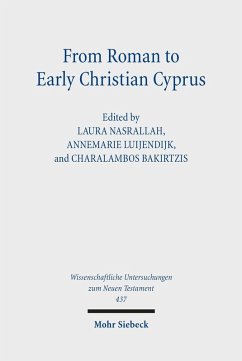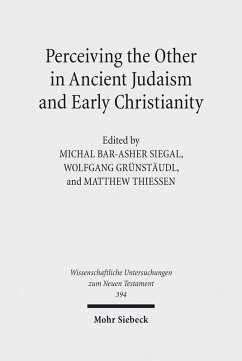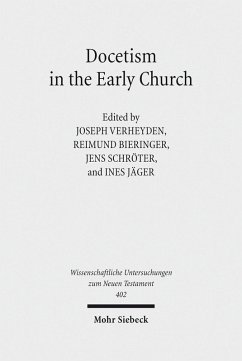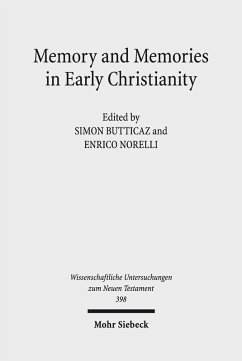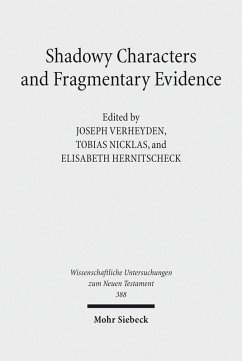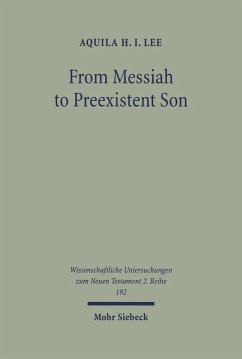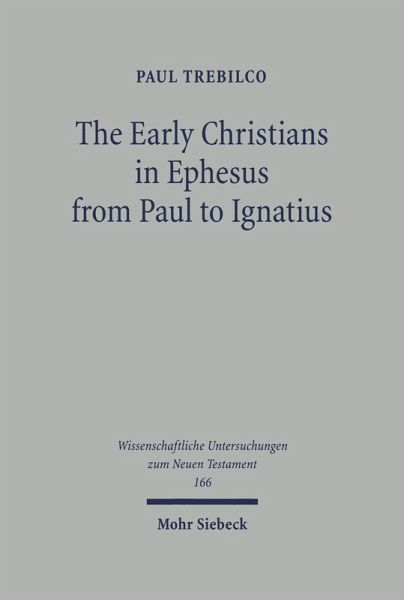
The Early Christians in Ephesus from Paul to Ignatius (eBook, PDF)
Versandkostenfrei!
Sofort per Download lieferbar
189,00 €
inkl. MwSt.
Weitere Ausgaben:

PAYBACK Punkte
0 °P sammeln!
In this book, Paul Trebilco seeks to discuss all the evidence for the life of the early Christians in Ephesus from Paul to Ignatius, seen in the context of our knowledge of the city as a whole. Drawing on Paul's letters and the Acts of the Apostles, the author discusses the beginnings of the life of the early Christians in Ephesus, both before the Pauline mission and during that mission. He then shows that in the period from around 80-100 CE there were a number of different groups in Ephesus who regarded themselves as Christians - the Pauline group addressed by the Pastorals, the Johannine gro...
In this book, Paul Trebilco seeks to discuss all the evidence for the life of the early Christians in Ephesus from Paul to Ignatius, seen in the context of our knowledge of the city as a whole. Drawing on Paul's letters and the Acts of the Apostles, the author discusses the beginnings of the life of the early Christians in Ephesus, both before the Pauline mission and during that mission. He then shows that in the period from around 80-100 CE there were a number of different groups in Ephesus who regarded themselves as Christians - the Pauline group addressed by the Pastorals, the Johannine group spoken of in 1-3 John, the opponents of the Pastor, the Johannine secessionists, and the Nicolaitans. Some key features of the life of each of these groups are discussed, as the evidence allows; this testifies to the diversity of early Christianity in Ephesus. It is also argued that the Pauline group and the Johannine group in Ephesus were distinct and separate communities, although they maintained non-hostile contact. This is done by examining a number of different themes relating to these two groups: their attitude to the wider world, their material possessions and the use to which they were put, their leadership structure and understanding of the locus of authority, the position of women, and their use of self-designations. Through discussing these themes, Paul Trebilco also describes a number of features of the distinctive identity of the Pauline and Johannine groups. He also argues that John the Seer in Revelation was seeking to address all Christians in the city and that Ignatius in his letter to Ephesus addresses all Christians in the city. Finally the information that Ignatius gives us about Christians in Ephesus in his time is discussed. Born 1958; 1987 PhD University of Durham, England; since 1988 teaching at University of Otago, Dunedin, New Zealand; currently Professor of Theology, and Head of the Department of Theology and Religious Studies.
Dieser Download kann aus rechtlichen Gründen nur mit Rechnungsadresse in A, B, BG, CY, CZ, D, DK, EW, E, FIN, F, GR, HR, H, IRL, I, LT, L, LR, M, NL, PL, P, R, S, SLO, SK ausgeliefert werden.






